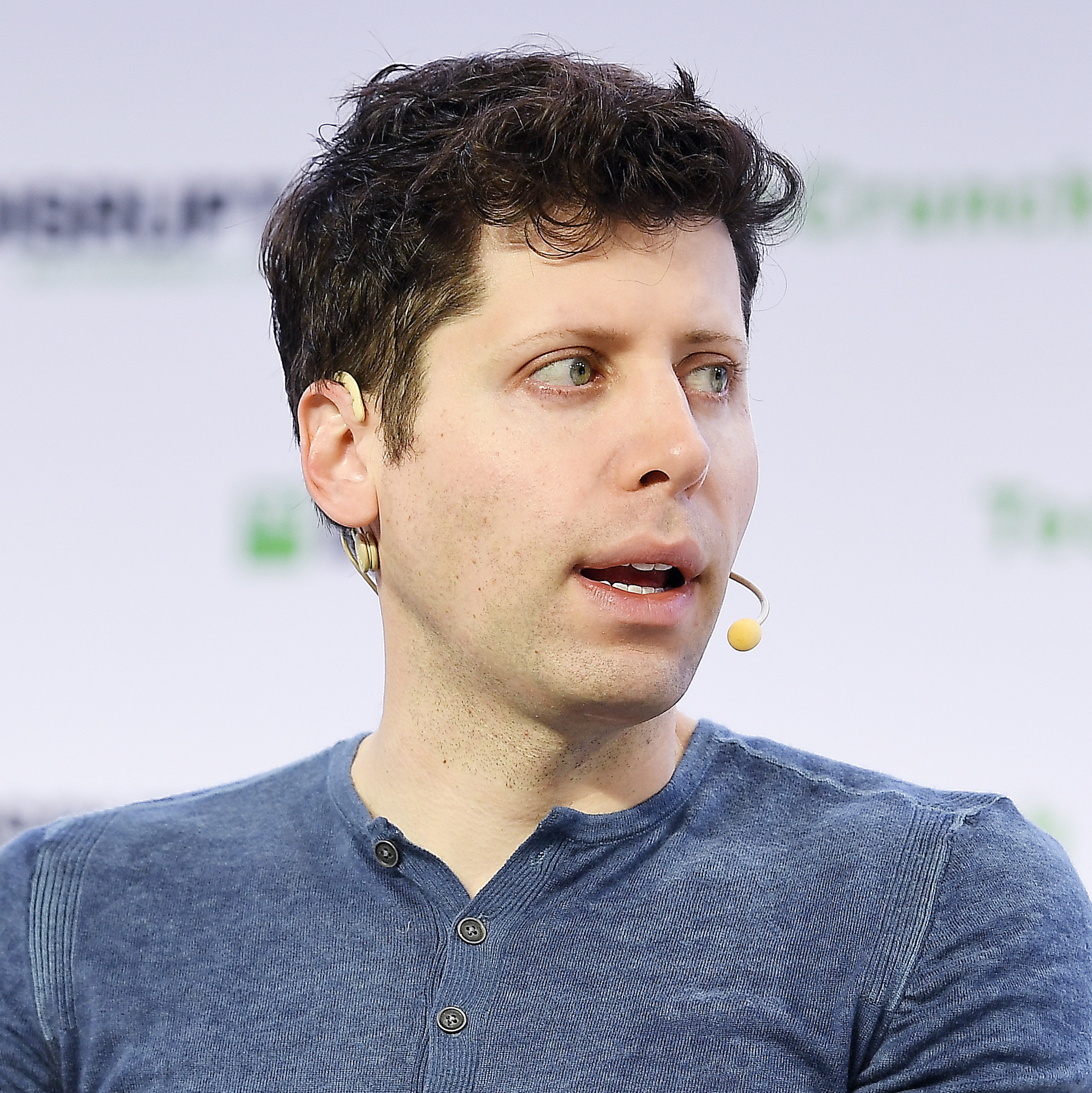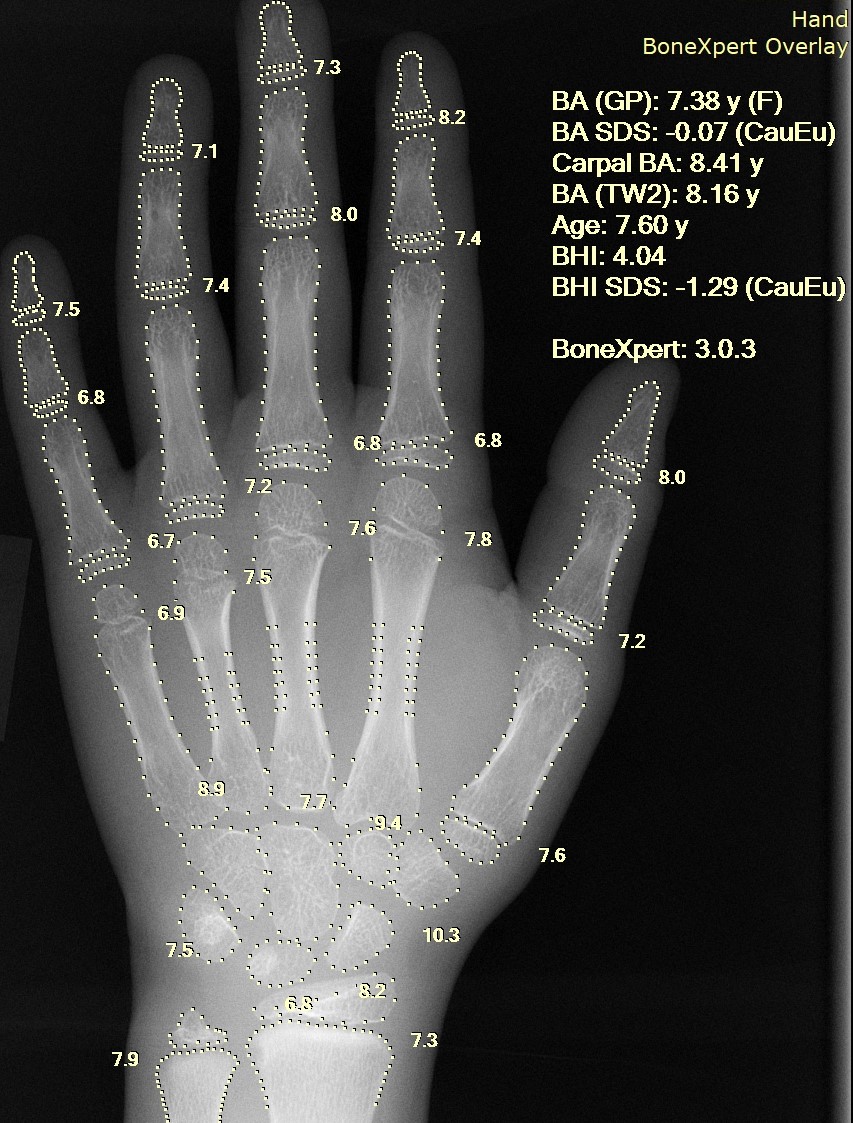
“AI-generated virtual movie star Ornella Muti” by Lasemainecomtoiise, 2018. Creative Commons CC0. Public domain. Included with appreciation.
Is it live or is it AI? The year 2023 saw breakthroughs in Artificial Intelligence (AI), accelerated by ChatGPT and other wonders. Legal questions emerged, marking the recognition of a significant milestone in civilization. Sam Altman, co-founder of OpenAI, made the news.

Sam Altman, co-founder of OpenAI, made the news in 2023. Image: “Sam Altman” by photographer Steve Jennings for Getty Images/Tech Crunch, crop edited by James Tamim, 2019. Creative Commons 2.0. Included with appreciation.
Legal issues on the rights of AI began in 2019 when the Device for the Autonomous Bootstrapping of Unified Sentience (DABUS) was named as inventor-of-record in a U.S. patent application. But DABUS was developed by a human, Stephen Thaler. Deliberations resulted in the decision that AI is not a person, and patents can be awarded only to those with personhood. In 2022, Thaler appealed; but the Federal Circuit Court issued an opinion on 5 August 2022 that “the invented cannot be the inventor.” (Nemec 2023) What would Alan Turing say?

Many credit Alan Turing as one of the early founders of computer science and artificial intelligence. Image: “Alan Turning” circa 1930. Public Domain. Included with appreciation.
In 2023, the Thaler decision led the U.S. Patent Office to express interest in additional guidance on how to handle AI’s contribution to inventions. It’s a question for our times, and for the future. AI not only walks the walk; it talks the talk.
AI not only walks the walk; it talks the talk. AI has a voice. Image: Activemaker2 by Hipocrite, 2006. Creative Commons Public Domain. Included with appreciation to Hipocrite.
AI has a voice. We hear it in chatbots, and we challenge it in strikes like that of the Writers Guild of America (WGA) and Authors Guild in 2023. AI-generated texts are a worry not only for authors whose carefully crafted language may be providing free training for bots who will later generate texts, but also for professors who must now consider plagiarism in a new way. Copyright law is also expanding to set guidelines for AI.

This x-ray of a hand was read and bone age diagnosed by AI, computer software BoneXpert. Image by Setzner1997, public domain. Included with appreciation.
Did you know that AI is racking up medical and pharmaceutical innovations? AI-driven drug discovery is being carried out by more than 250 companies, half of which are in the United States. The advantage of AI as a research partner is speed: Sumitomo Dainippon Pharma and Exscientia developed DSP-1191 to ease a difficult condition in one-quarter of the normal time it takes for such discoveries. (McKinsey, 2022)

“Particle Swarm Seeking Global Minimum” graphic animation by Ephramac, 2017. Public Domain. Included with appreciation.
While much of the activity, and controversy, concerning AI stirs the American economy, the European Union may be the first to develop AI laws. The 2023 EU’s “AI Act” forbids AI that threatens public safety and person’s rights. The law developed over two years of discussion, noting chatbots, OpenAI, ChatGPT, image-generation technologies, as well as audio and video. AI images have mesmerized and influenced over 100 million users. Images may include facial recognition, important to law enforcement and immigration, but also perhaps threatening to personal privacy and frequently racially unjust.

Facial recognition software is a form of AI. Image: “Eigenfaces from ORL face data” from AT&T Laboratories, Cambridge. Public Domain. Included with appreciation to AT&T and ORL.
EU and US law both address use of the prompt to generate images through AI. Such images are, by definition, not applicable to copyright law because they do not contain enough material that can be judged as created by a human. Artists, including members of creative communities like HUG, are taking note. Here’s such an image:

AI-generated image, created by prompt. Image: “Snow glove that contains a spiral galaxy,” prompt by Jason, 2023. Because it is AI-generated, this image is in the public domain. It is included with appreciation to Jasin for the prompt.
Fascinated by what’s real and what’s AI? Interested in AI tools? Here is a list of the top 100 AI tools of 2023. Want to create your own images with a prompt? Try this Harvard guide.
Alan Turing. “The Turing Digital Archive.” King’s College, Cambridge University. https://turingarchive.kings.cam.ac.uk/node/2
Devereson, Alex, et al., “AI in biopharma research: A time to focus and scale,” 10 October 2022. McKinsey & Company. https://www.mckinsey.com/industries/life-sciences/our-insights/ai-in-biopharma-research-a-time-to-focus-and-scale
European Union. “AI Act” https://www.europarl.europa.eu/news/en/press-room/20231206IPR15699/artificial-intelligence-act-deal-on-comprehensive-rules-for-trustworthy-ai
Exscientia. https://www.exscientia.ai
Harvard University. “Getting started with prompts for text-based Generative AI tools.” Harvard University Information Technology (HUIT). https://huit.harvard.edu/news/ai-prompts
Nemec, Douglas R. and Laura M. Rann. “AI and Patent Law: Balancing Innovation and Inventorship.” April 2023. Skadden Insights. Skadden, Arps, Slate, Meagher & Flom LLP and Affiliates. https://www.skadden.com/insights/publications/2023/04/quarterly-insights/ai-and-patent-law
Sumitomo Pharma. https://www.sumitomo-pharma.com
Thaler v. Vidal. https://cafc.uscourts.gov/opinions-orders/21-2347.OPINION.8-5-2022_1988142.pdf.
United States Government Accountability Office (GAO). “Artificial Intelligence’s Use and Rapid Growth Highlight Its Possibilities and Perils.” 6 September 2023. U.S, GAO. https://www.gao.gov/blog/artificial-intelligence-use-and-rapid-growth-highlight-its-possibilities-and-perils
United States Patent and Trademark Office (USPTO). “Inventing AI: Tracing the diffusion of artificial intelligence with U.S. patents.” Office of the Chief Economist, USPTO, October 2020. https://www.uspto.gov/sites/default/files/documents/OCE-DH-AI.pdf
Zuckerberg, Randi and Debbie Soon. “Hug and Stability AI.” https://thehug.xyz
Building the World Blog by Kathleen Lusk Brooke and Zoe G. Quinn is licensed under a Creative Commons Attribution-NonCommercial-NoDerivs 3.0 U
Appreciation to Rachael M. Rusting, Cherie E. Potts, Todd H. Ward, and Shira P. White for discussions of AI.

